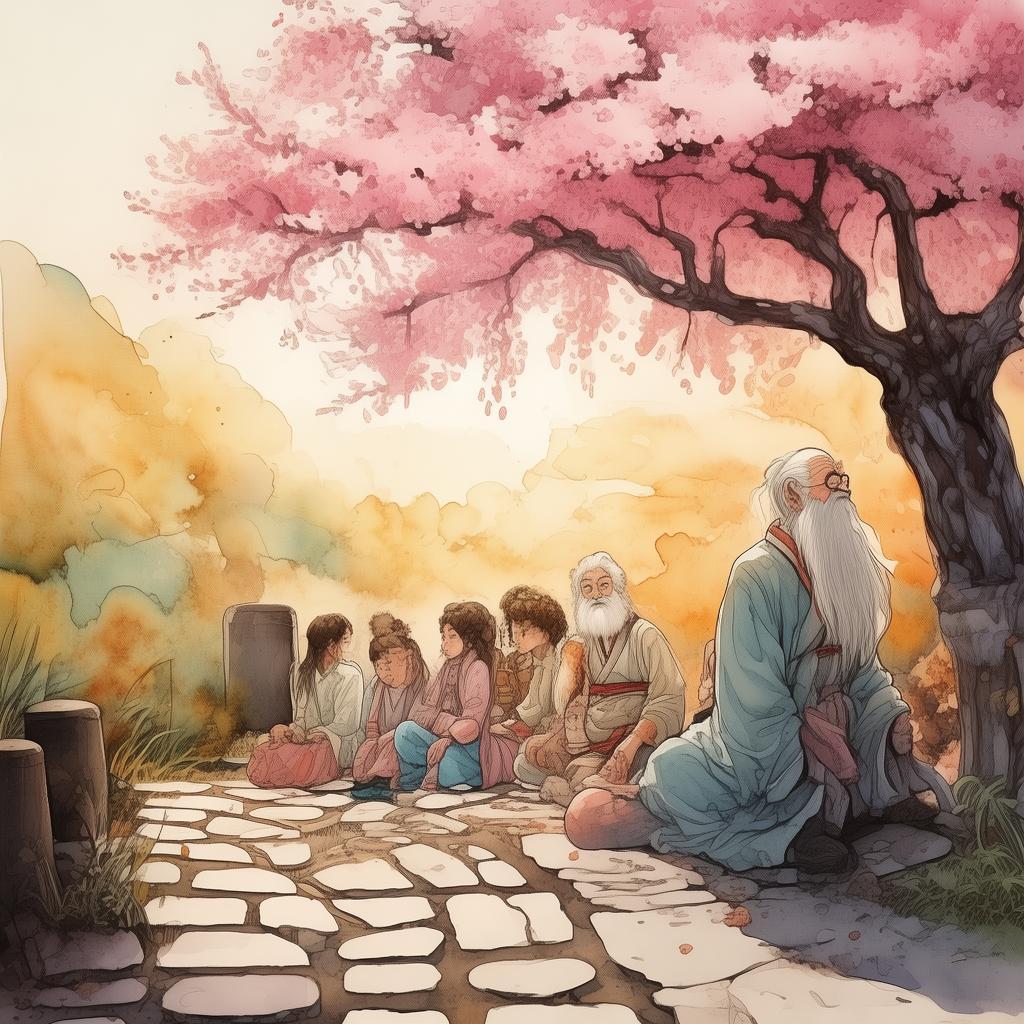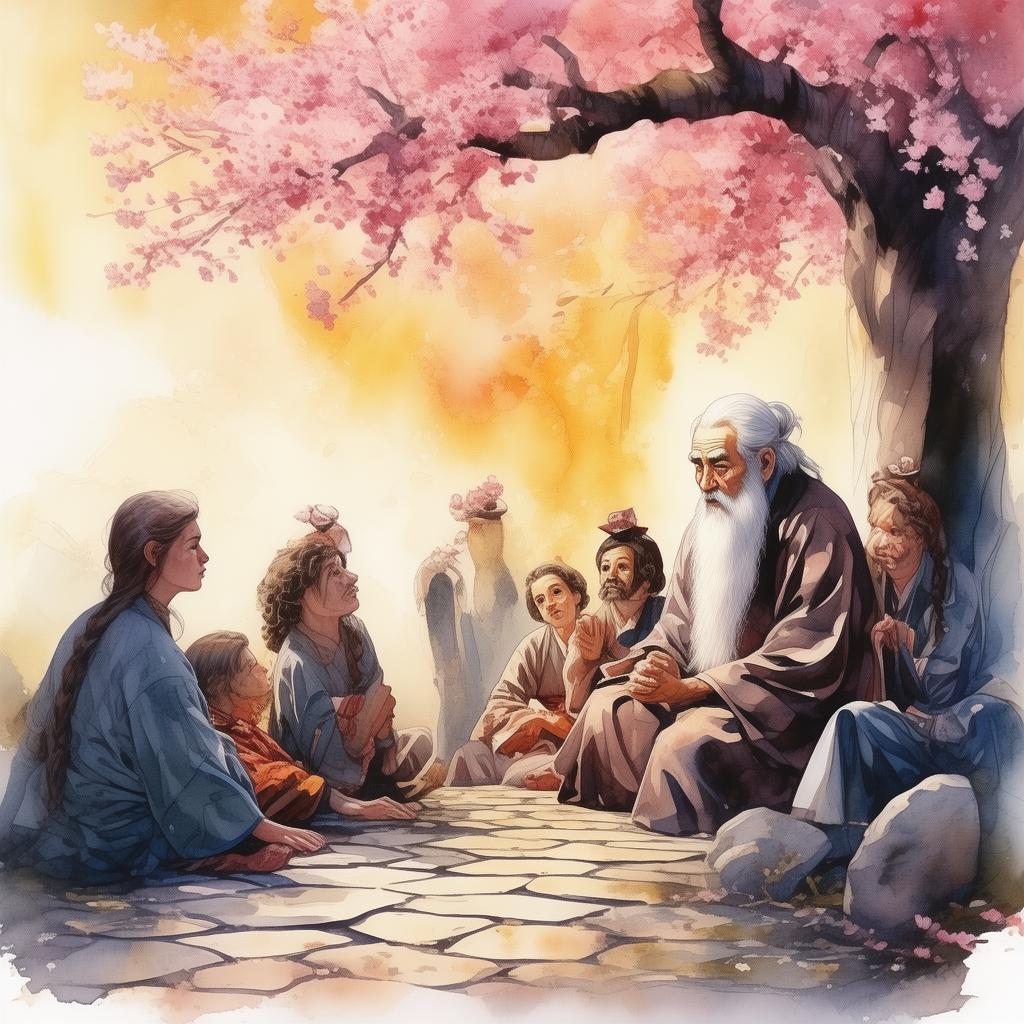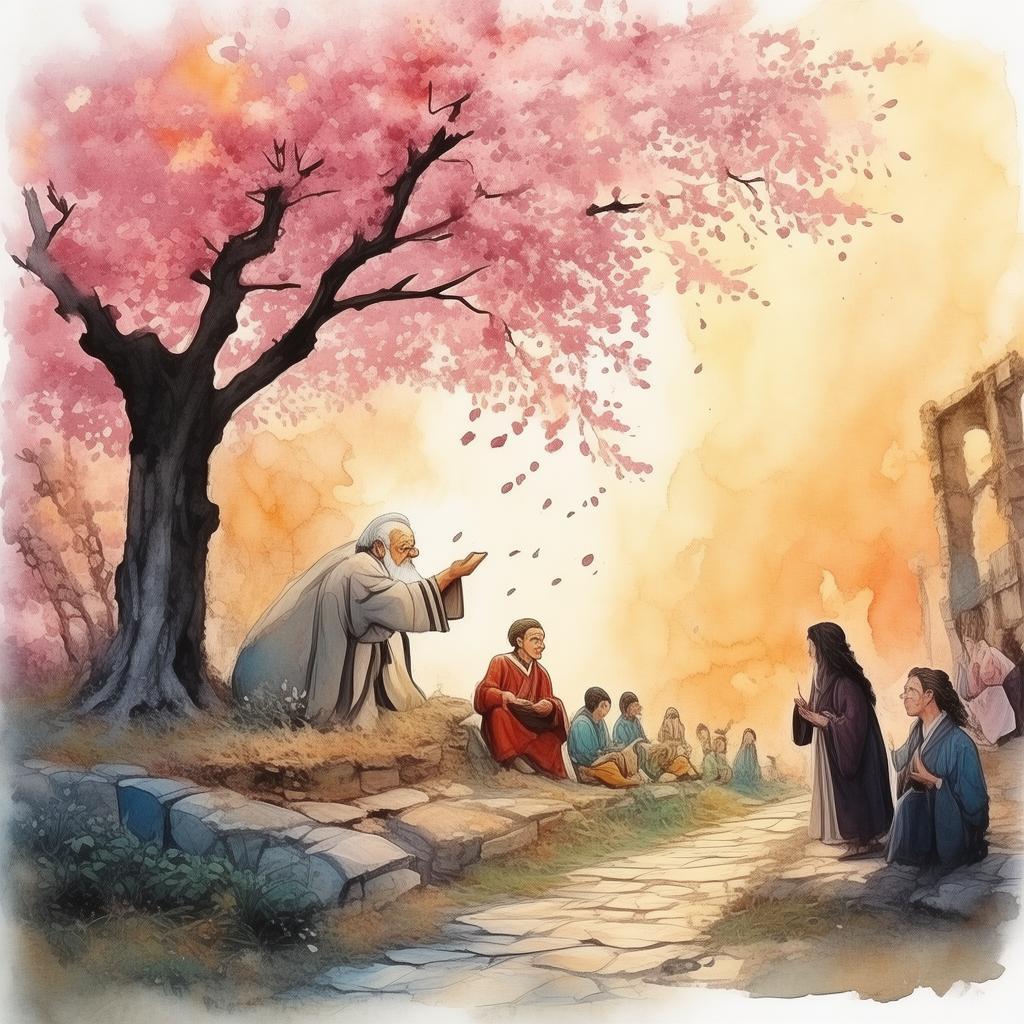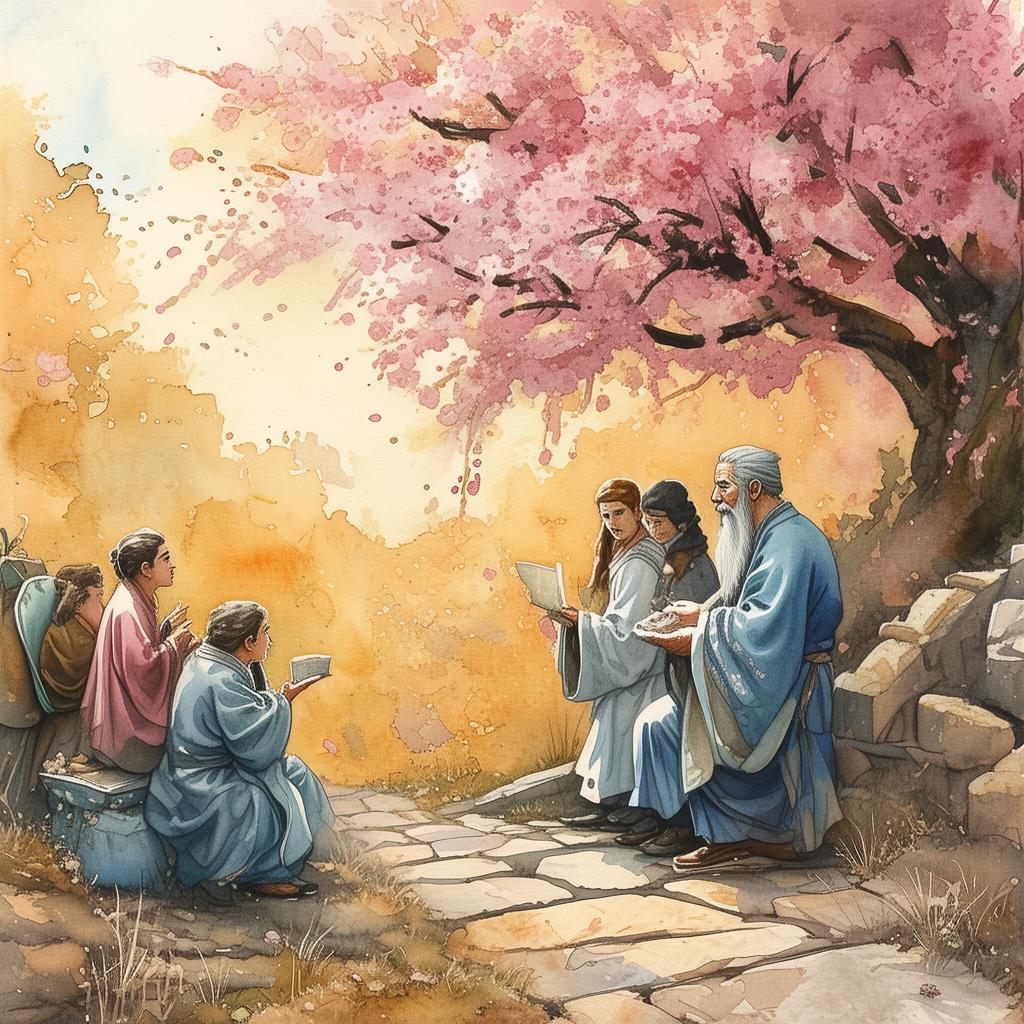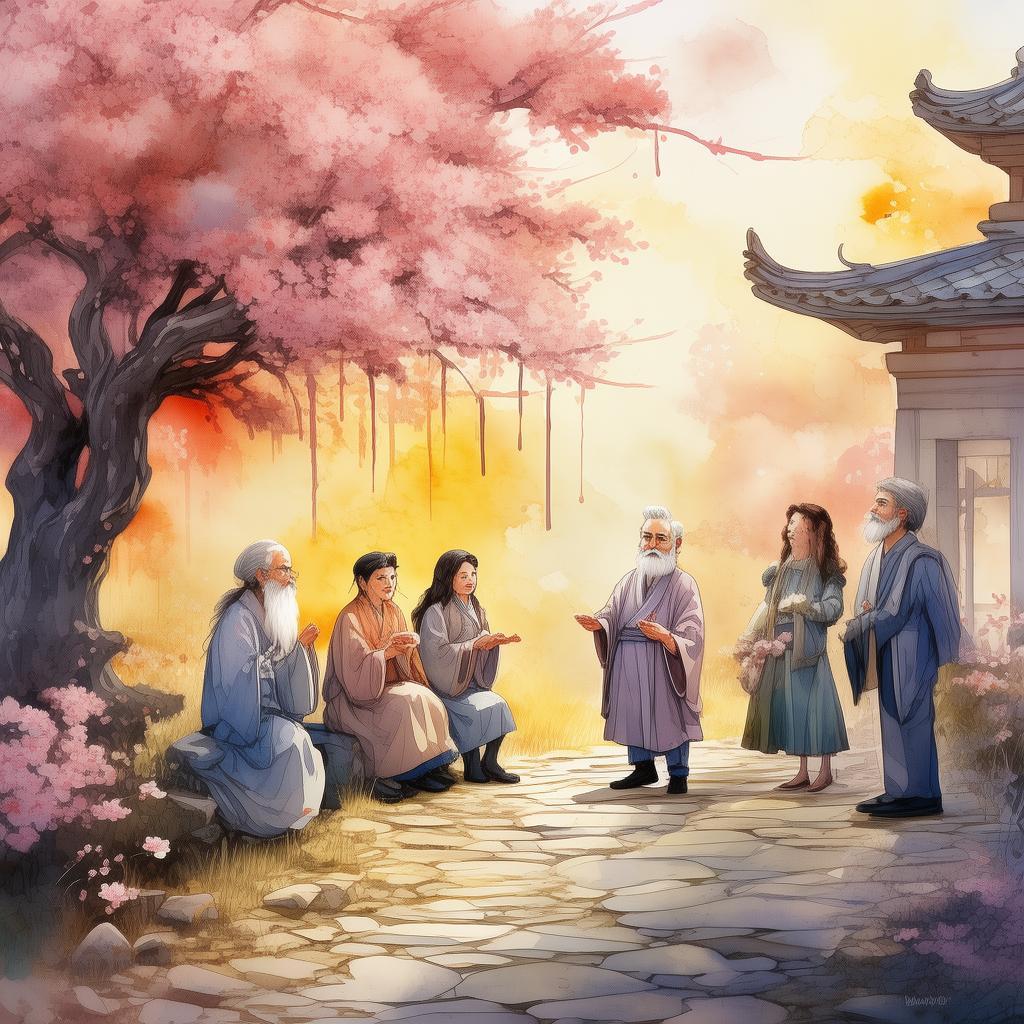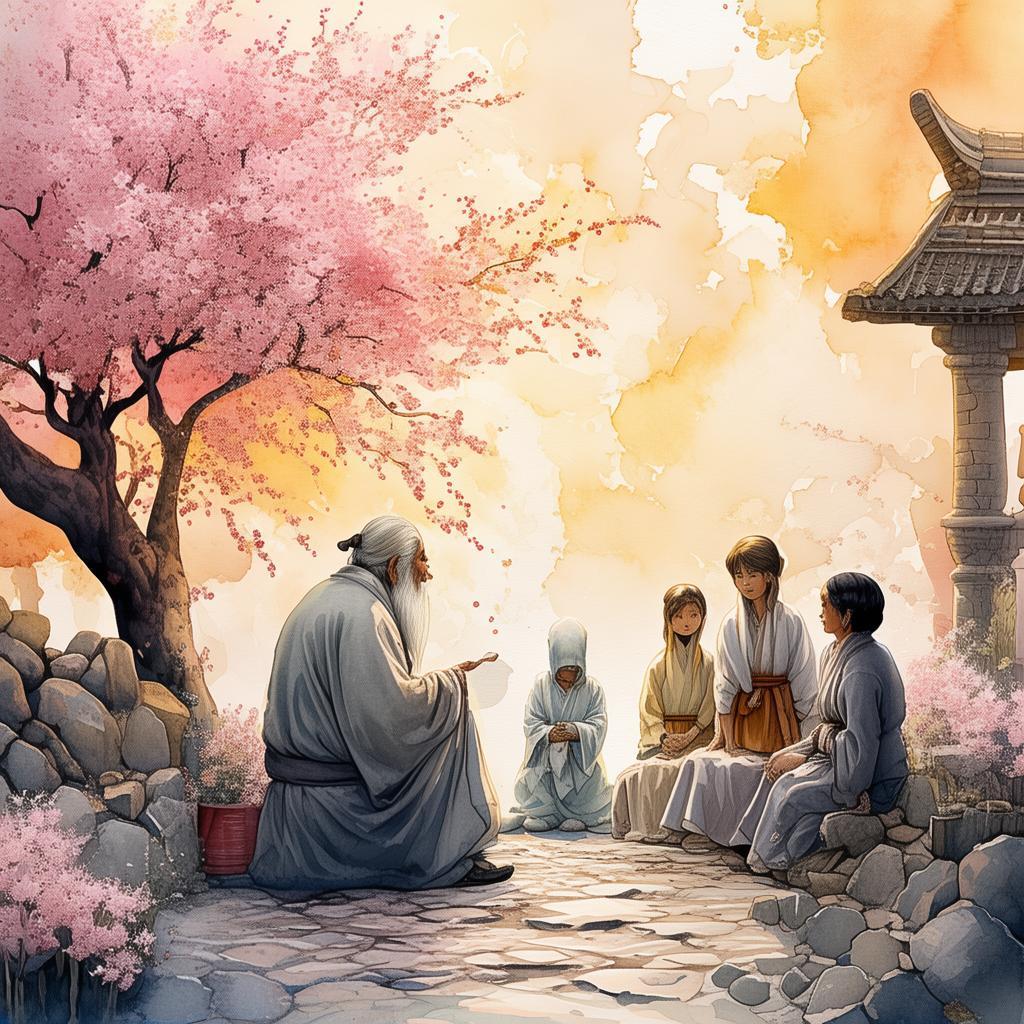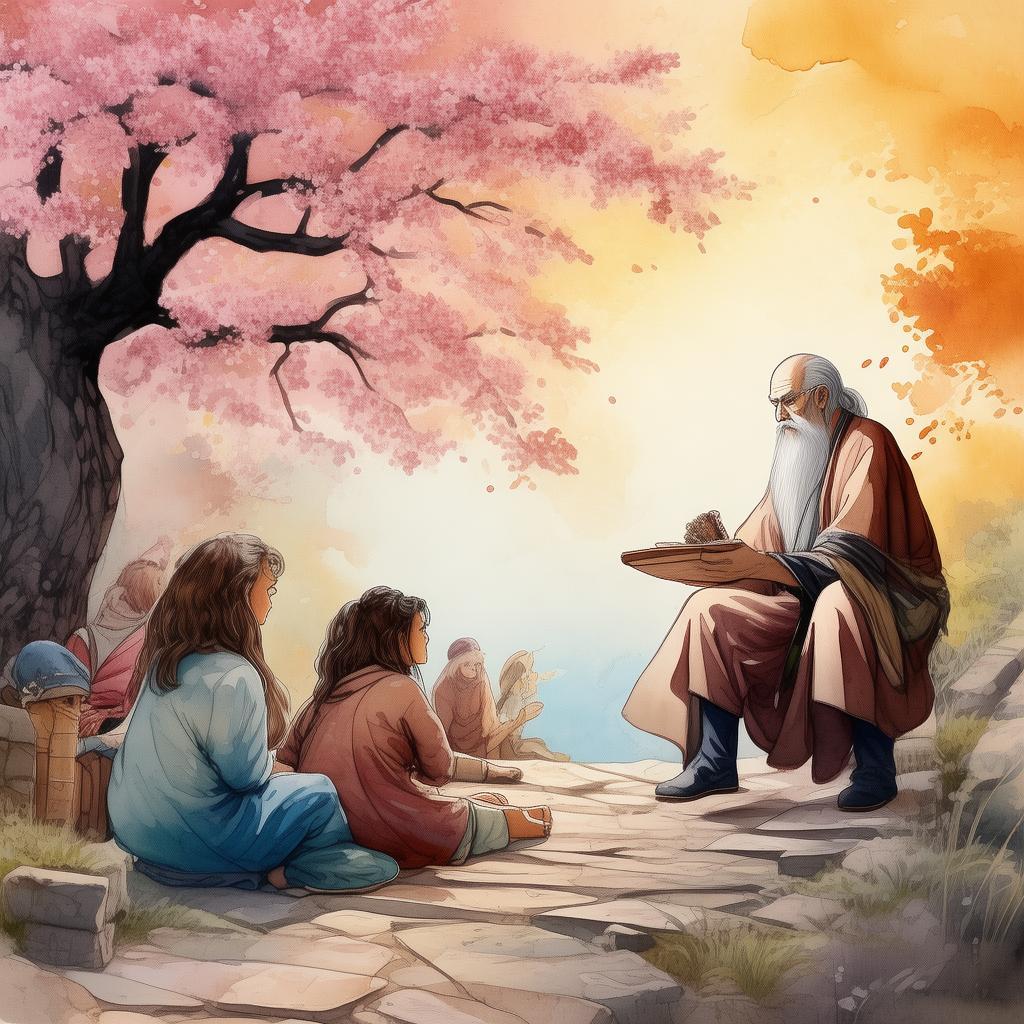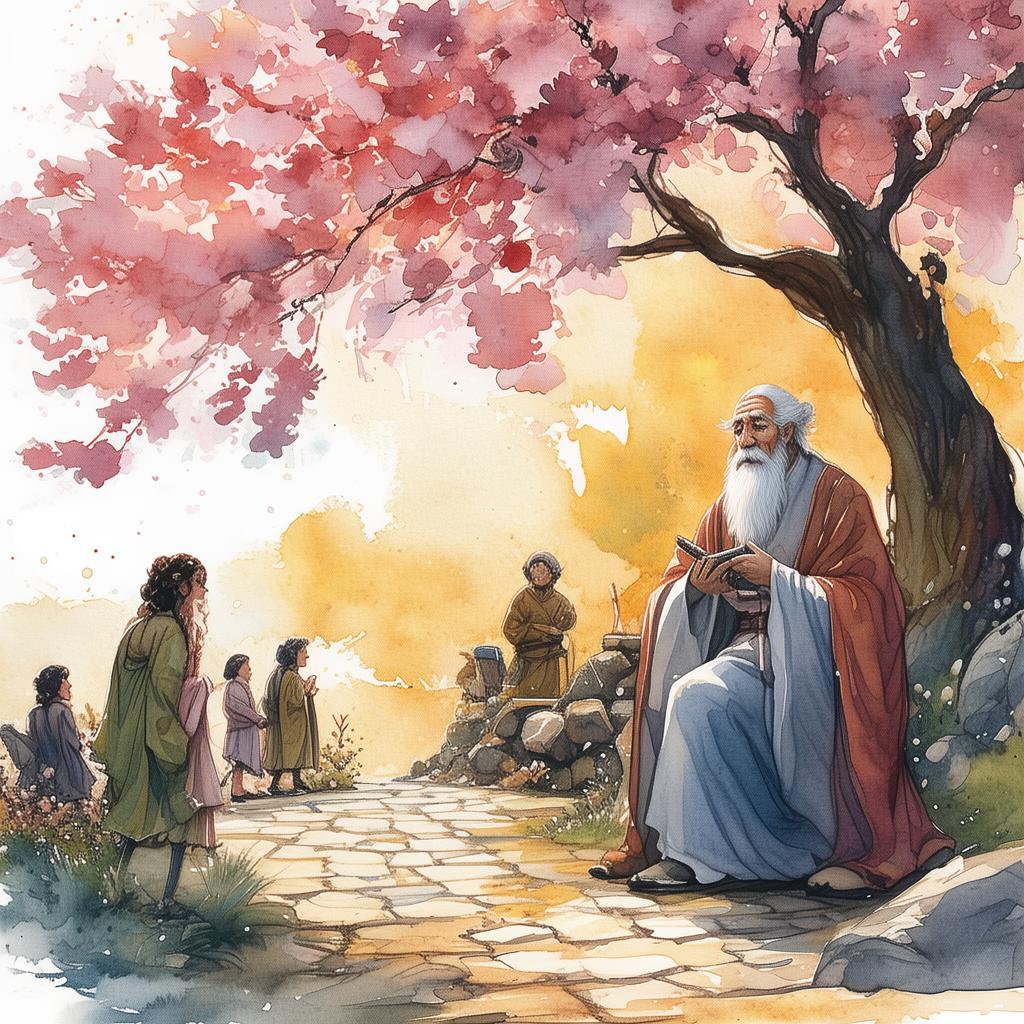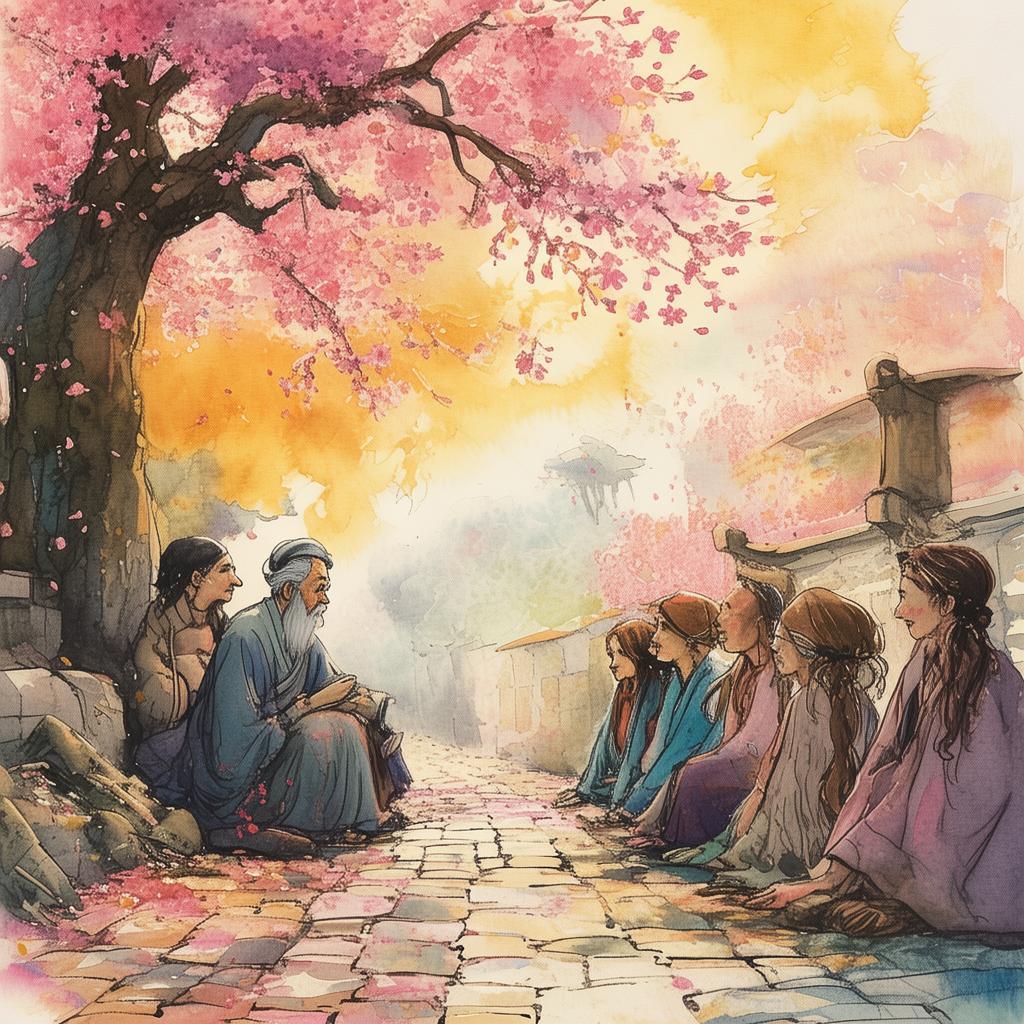The Lute's Melody: A Quest for Redemption
In the heart of ancient China, there lived a talented lute player named Feng Li. His fingers danced across the strings with a grace that could captivate the most disheartened soul. His lute, known as the "Silent Sorrow," was said to have been crafted by a master craftsman who imbued it with a piece of his soul, granting it the ability to sing the stories of those who played it.
Feng Li's life had been a melody of misfortune. He was born into poverty, and at the age of five, his parents sold him to a wealthy family in hopes that he would rise above his circumstances. The family was kind, but they could not change his destiny. As he grew older, he realized the true cost of his freedom—his musical talent was used to entertain the rich, while he was kept in the shadows, a silent witness to their opulence.
One day, a traveling monk, with eyes that seemed to see through to the soul, approached Feng Li. "Your lute, the Silent Sorrow, holds a melody that is not for entertainment but for revelation," the monk said, his voice carrying an ancient wisdom. "It will not sing for just any hand. It seeks someone who is worthy of its secrets."
Intrigued and desperate for any means to change his life, Feng Li decided to follow the monk's words. He embarked on a quest to prove his worthiness, a quest that would take him from the opulent courts of the rich to the humble abodes of the poor, and finally to the depths of his own past.
The journey was fraught with challenges. Feng Li faced the greed of the court, the envy of his fellow musicians, and the relentless pursuit of his past. Each time he played the lute, the melody revealed more of his past, and each revelation brought him closer to understanding his own misfortune.
One evening, as the sun dipped below the horizon, casting a golden glow over the ancient city, Feng Li found himself at an abandoned temple. The air was thick with the scent of incense and the sound of distant birds. Here, he had an encounter with his past, a confrontation with the man who had sold him into slavery.
The man, now a frail old man, stood before him, his eyes filled with remorse. "Feng Li, my son," he whispered. "I was a greedy man, but I never wanted to harm you. Your talent was my chance to rise above my own misfortune, not yours."
The lute's melody swelled, a powerful force that seemed to hold the past and the present in its grip. Feng Li felt a wave of emotion wash over him, and he knew that the melody was more than a song; it was a testament to the human condition, a reminder of the interconnectedness of all souls.
With a newfound understanding, Feng Li returned to the court, but not to entertain. He played the lute for the king, not with the aim of gaining favor, but to share the message of redemption and hope that the melody had imparted upon him.
The king, moved by the melody and the story behind it, declared Feng Li a hero. The musician, who had once been a silent witness to the opulence of the rich, became the voice of the people, using his lute to bring them together in a shared melody of hope and resilience.
The lute's melody, once silent and sorrowful, had found its true purpose. It had not only revealed Feng Li's past but also his path to redemption. And in doing so, it had become a beacon of light in a world often shrouded in misfortune.
In the heart of ancient China, there lived a talented lute player named Feng Li. His fingers danced across the strings with a grace that could captivate the most disheartened soul. His lute, known as the "Silent Sorrow," was said to have been crafted by a master craftsman who imbued it with a piece of his soul, granting it the ability to sing the stories of those who played it.
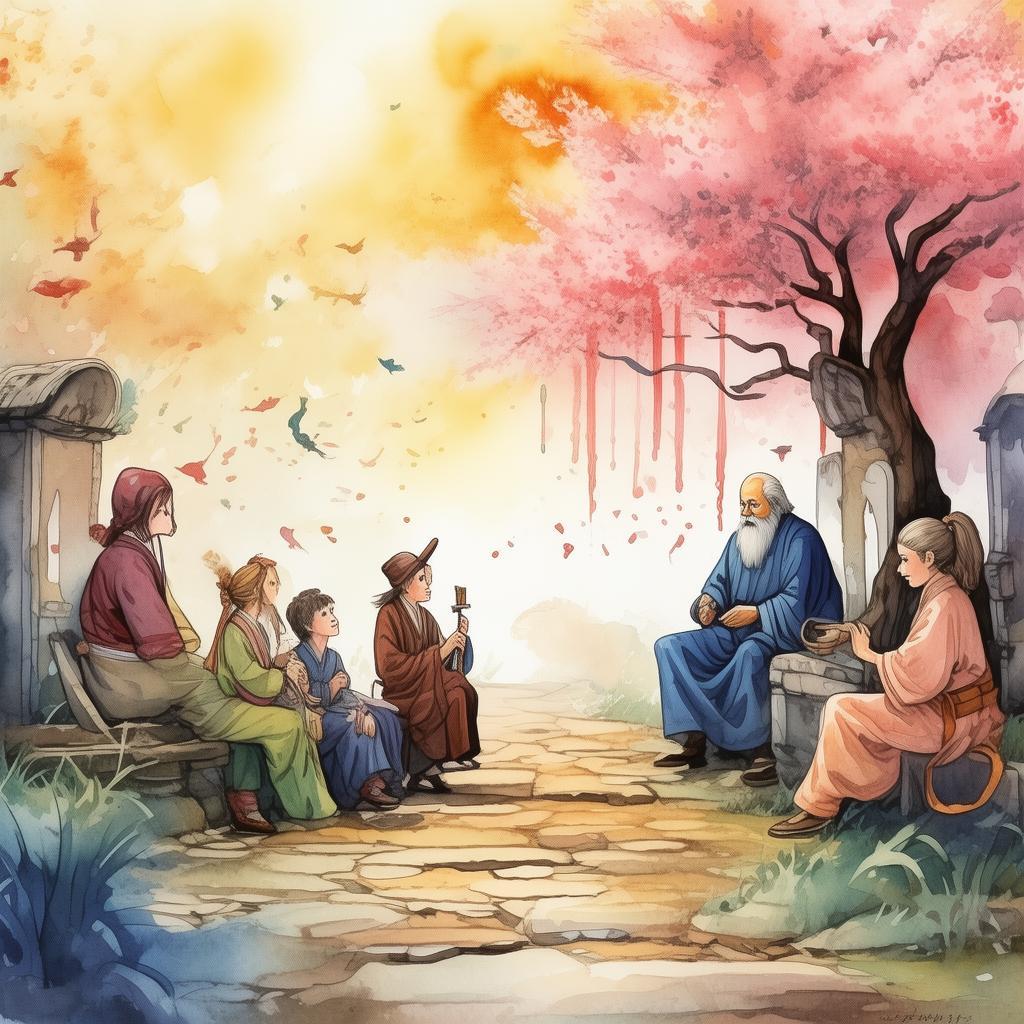
Feng Li's life had been a melody of misfortune. He was born into poverty, and at the age of five, his parents sold him to a wealthy family in hopes that he would rise above his circumstances. The family was kind, but they could not change his destiny. As he grew older, he realized the true cost of his freedom—his musical talent was used to entertain the rich, while he was kept in the shadows, a silent witness to their opulence.
One day, a traveling monk, with eyes that seemed to see through to the soul, approached Feng Li. "Your lute, the Silent Sorrow, holds a melody that is not for entertainment but for revelation," the monk said, his voice carrying an ancient wisdom. "It will not sing for just any hand. It seeks someone who is worthy of its secrets."
Intrigued and desperate for any means to change his life, Feng Li decided to follow the monk's words. He embarked on a quest to prove his worthiness, a quest that would take him from the opulent courts of the rich to the humble abodes of the poor, and finally to the depths of his own past.
The journey was fraught with challenges. Feng Li faced the greed of the court, the envy of his fellow musicians, and the relentless pursuit of his past. Each time he played the lute, the melody revealed more of his past, and each revelation brought him closer to understanding his own misfortune.
One evening, as the sun dipped below the horizon, casting a golden glow over the ancient city, Feng Li found himself at an abandoned temple. The air was thick with the scent of incense and the sound of distant birds. Here, he had an encounter with his past, a confrontation with the man who had sold him into slavery.
The man, now a frail old man, stood before him, his eyes filled with remorse. "Feng Li, my son," he whispered. "I was a greedy man, but I never wanted to harm you. Your talent was my chance to rise above my own misfortune, not yours."
The lute's melody swelled, a powerful force that seemed to hold the past and the present in its grip. Feng Li felt a wave of emotion wash over him, and he knew that the melody was more than a song; it was a testament to the human condition, a reminder of the interconnectedness of all souls.
With a newfound understanding, Feng Li returned to the court, not to entertain. He played the lute for the king, not with the aim of gaining favor, but to share the message of redemption and hope that the melody had imparted upon him.
The king, moved by the melody and the story behind it, declared Feng Li a hero. The musician, who had once been a silent witness to the opulence of the rich, became the voice of the people, using his lute to bring them together in a shared melody of hope and resilience.
The lute's melody, once silent and sorrowful, had found its true purpose. It had not only revealed Feng Li's past but also his path to redemption. And in doing so, it had become a beacon of light in a world often shrouded in misfortune.
✨ Original Statement ✨
All articles published on this website (including but not limited to text, images, videos, and other content) are original or authorized for reposting and are protected by relevant laws. Without the explicit written permission of this website, no individual or organization may copy, modify, repost, or use the content for commercial purposes.
If you need to quote or cooperate, please contact this site for authorization. We reserve the right to pursue legal responsibility for any unauthorized use.
Hereby declared.
